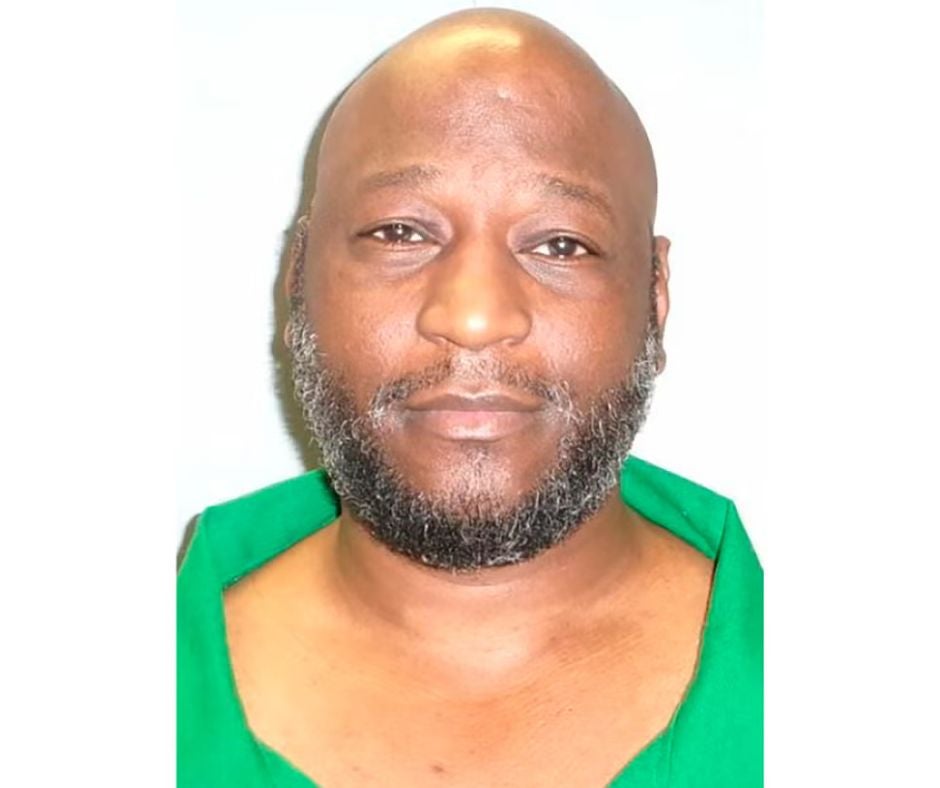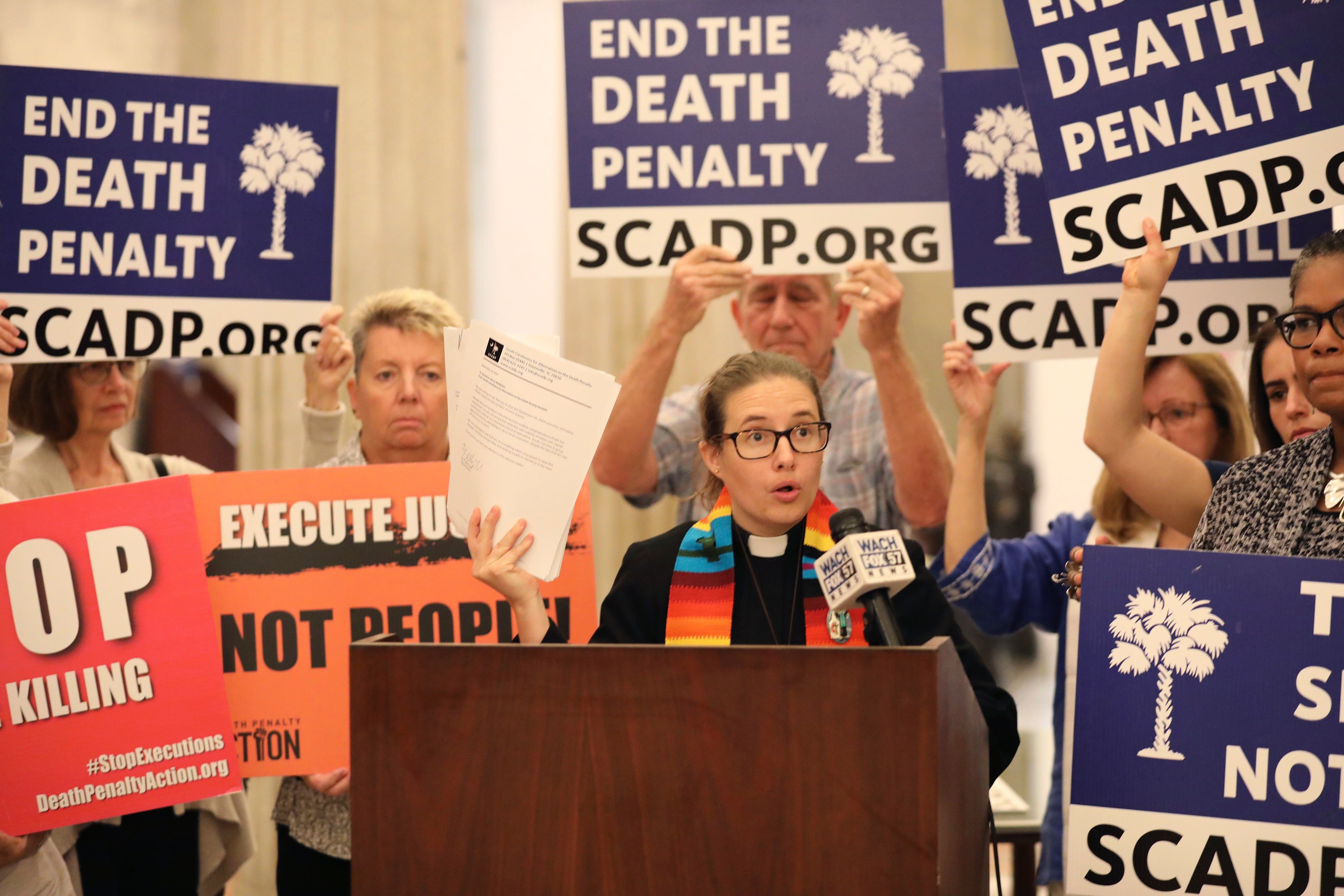Man whose testimony sent South Carolina inmate to death row admits he lied days before scheduled execution
South Carolina inmate Freddie Owens is set to die by lethal injection on Friday - the state’s first execution in over a decade

Your support helps us to tell the story
From reproductive rights to climate change to Big Tech, The Independent is on the ground when the story is developing. Whether it's investigating the financials of Elon Musk's pro-Trump PAC or producing our latest documentary, 'The A Word', which shines a light on the American women fighting for reproductive rights, we know how important it is to parse out the facts from the messaging.
At such a critical moment in US history, we need reporters on the ground. Your donation allows us to keep sending journalists to speak to both sides of the story.
The Independent is trusted by Americans across the entire political spectrum. And unlike many other quality news outlets, we choose not to lock Americans out of our reporting and analysis with paywalls. We believe quality journalism should be available to everyone, paid for by those who can afford it.
Your support makes all the difference.Just days before inmate Freddie Owens is set to die by lethal injection in South Carolina, the friend whose testimony helped send him to prison is saying he lied to save himself from the death chamber.
Owens is set to die at 6 p.m. Friday at a Columbia prison for the killing of a Greenville convenience store clerk in 1997.
But Owens' lawyers on Wednesday filed a sworn statement from his co-defendant Steven Golden late Wednesday to try to stop South Carolina from carrying out its first execution in more than a decade. The state Supreme Court has asked prosecutors and defense to finish their written arguments by Thursday afternoon.
Prosecutors have previously noted that several other witnesses testified that Owens told them he pulled the trigger. And the state Supreme Court refused to stop Owens' execution last week after Golden, in a sworn statement, said that he had a secret deal with prosecutors that he never told the jury about.
On Wednesday, Golden signed another sworn statement saying Owens wasn't at the store when Irene Graves was killed during a robbery.
Instead, he said he blamed Owens because he was high on cocaine and police put pressure on him by claiming they already knew the two were together and that Owens was talking. Golden also said he feared the real killer.
“I thought the real shooter or his associates might kill me if I named him to police. I am still afraid of that. But Freddie was not there,” Golden wrote in his statement, which does not name the other person.

Golden testified at Owens' trial, saying prosecutors promised to consider his testimony in his favor but he still faced the death penalty or life in prison. He was eventually sentenced to 28 years in prison after pleading guilty to a lesser charge of voluntary manslaughter, according to court records.
"I’m coming forward now because I know Freddie’s execution date is September 20 and I don’t want Freddie to be executed for something he didn’t do. This has weighed heavily on my mind and I want to have a clear conscience," Golden wrote in his statement.
Prosecutors have said Golden wasn't the only evidence linking Owens to the crime since other friends testified that they, along with Owens, had planned to rob the store. Those friends said Owens bragged to them about killing Graves. His girlfriend also testified that he confessed to the killing.
Prosecutors argued last week that Graves' decision to change his story shouldn't be enough to stop the execution because Graves has now admitted to lying under oath, thereby showing that he cannot be trusted to tell the truth.
“Additionally the timing of Golden's revelation to aid his confederate approximately a month from Owens' execution is suspect as well," prosecutors wrote in court papers.

On Thursday, a group called South Carolinians for Alternatives to the Death Penalty presented a petition with more than 10,000 signatures to Governor Henry McMaster's office asking him to reduce Owens' sentence to life in prison.
“Justice works for restoration. You cannot restore someone who you kill,” said the group's executive director, Rev. Hillary Taylor, as she read from one of the comments on the petition.
McMaster, a Republican, has said he will wait to announce his decision on clemency until prison officials call him minutes before the execution begins.
Owens would be the first person executed in South Carolina in 13 years after the state struggled to obtain drugs needed for lethal injections because companies refused to sell them if they could be publicly identified.
The state added a firing squad option and passed a shield law to keep much of the details of executions private. The state Supreme Court then cleared the way for the death chamber to reopen this summer.
Five other inmates are also out of appeals and the state can schedule executions every five weeks.